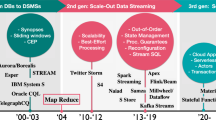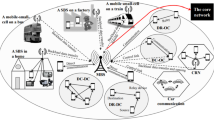Abstract
In this paper, the authors consider how to design defensive countermeasures against DoS attacks for remote state estimation of multiprocess systems. For each system, a sensor will measure its state and transmits the data packets through an unreliable channel which is vulnerable to be jammed by an attacker. Under limited communication bandwidth, only a subset of sensors are allowed for data transmission, and how to select the optimal one to maximize the accuracy of remote state estimation is the focus of the proposed work. The authors first formulate this problem as a Markov decision process and investigate the existence of optimal policy. Moreover, the authors demonstrate the piecewise monotonicity structure of optimal policy. Given the difficulty of obtaining an optimal policy of large-scale problems, the authors develop a suboptimal heuristic policy based on the aforementioned policy structure and Whittle’s index. Moreover, a closed form of the indices is derived in order to reduce implementation complexity of proposed scheduling policy and numerical examples are provided to illustrate the proposed developed results.
Similar content being viewed by others
References
Sha L, Gopalakrishnan S, Liu X, et al., Cyber-physical systems: A new frontier, 2008 IEEE International Conference on Sensor Networks, Ubiquitous, and Trustworthy Computing (SUTC 2008), Taichung, 2008.
Rajkumar R, Lee I, Sha L, et al., Cyber-physical systems: The next computing revolution, Proceedings of the 47th Design Automation Conference, Anaheim, 2010.
Lee E A, Cyber physical systems: Design challenges, 2008 11th IEEE International Symposium on Object and Component-Oriented Real-Time Distributed Computing (ISORC), Orlando, 2008.
Dibaji S M, Pirani M, Flamholz D B, et al., A systems and control perspective of CPS security, Annual Reviews in Control, 2019, 47: 394–411.
Sinopoli B, Schenato L, Franceschetti M, et al., Kalman filtering with intermittent observations, IEEE Trans. on Automatic Control, 2004, 49(9): 1453–1464.
Kuvshinkova S, SQL Slammer worm lessons learned for consideration by the electricity sector, North American Electric Reliability Council, 2003, 1(2): 5.
Chen T M and Abu-Nimeh S, Lessons from stuxnet, Computer, 2011, 44(4): 91–93.
Peng T, Leckie C, and Ramamohanarao K, Survey of network-based defense mechanisms countering the DoS and DDoS problems, ACM Computing Surveys (CSUR), 2007, 39(1): 3.
Wu G Y and Sun J, Optimal data integrity attack on actuators in cyber-physical systems, 2016 American Control Conference (ACC), Boston, 2016.
Guo Z, Shi D, Johansson K H, et al., Optimal linear cyber-attack on remote state estimation, IEEE Trans. Control of Network Systems, 2017, 4(1): 4–13.
Zhang H, Cheng P, Shi L, et al., Optimal denial-of-service attack scheduling with energy constraint, IEEE Trans. Automatic Control, 2015, 60(11): 3023–3028.
Gao R, Huang J, and Wang L, Leaderless consensus control of uncertain multi-agents systems with sensor and actuator attacks, Information Sciences, 2019, 505: 144–156.
Chen Y, Kar S, and Moura J M F, Resilient distributed estimation: Sensor attacks, IEEE Trans. Automatic Control, 2018, 64(9): 3772–3779.
Ma R, Shi P, and Wu L, Dissipativity-based sliding-mode control of cyber-physical systems under denial-of-service attacks, IEEE Trans. Cybernetics, 2020, 51(5): 2306–2318.
Feng S, Cetinkaya A, Ishii H, et al., Networked control under DoS attacks: Tradeoffs between resilience and data rate, IEEE Trans. Automatic Control, 2020, 66(1): 460–467.
Li Y, Shi L, Cheng P, et al., Jamming attacks on remote state estimation in cyber-physical systems: A game-theoretic approach, IEEE Trans. Automatic Control, 2015, 60(10): 2831–2836.
Ding K, Li Y, Quevedo D E, et al., A multi-channel transmission schedule for remote state estimation under DoS attacks, Automatica, 2017, 78: 194–201.
Nisan N, Roughgarden T, and Tardos E, Algorithmic Game Theory, Cambridge University Press, Cambridge, 2007.
Wu S, Ding K, Cheng P, et al., Optimal scheduling of multiple sensors over lossy and bandwidth limited channels, IEEE Trans. Control of Network Systems, 2020, 7(3): 1188–1200.
Ren X, Wu J, Dey S, et al., Attack allocation on remote state estimation in multi-systems: Structural results and asymptotic solution, Automatica, 2018, 87: 184–194.
Kalman R E, A new approach to linear filtering and prediction problems, Transactions of the ASME-Hournal of Basic Engineering, 1960, 82: 35–45.
Mo Y, Chabukswar R, and Sinopoli B, Detecting integrity attacks on SCADA systems, IEEE Trans. Control Systems Technology, 2013, 22(4): 1396–1407.
Anderson B D O and Moore J B, Optimal Filtering, Courier Corporation, North Chelmsford, 2012.
Shi L and Zhang H, Scheduling two gauss-markov systems: An optimal solution for remote state estimation under bandwidth constraint, IEEE Trans. Signal Processing, 2012, 60(4): 2038–2042.
Mesquita A R, Hespanha J P, and Nair G N, Redundant data transmission in control/estimation over lossy networks, Automatica, 2012, 48(8): 1612–1620.
Whittle P, Restless bandits: Activity allocation in a changing world, Journal of Applied Probability, 1988, 25(A): 287–298.
Kailath T, Sayed A H, and Hassibi B, Linear Estimation, Prentice Hall, Hoboken, 2000.
Hernández-Lerma O and Lasserre J B, Discrete-Time Markov Control Processes: Basic Optimality Criteria, Springer Science & Business Media, New York, 2012.
Author information
Authors and Affiliations
Corresponding author
Ethics declarations
The authors declare no conflict of interest.
Additional information
This research was supported by the National Natural Science Foundation of China under Grant No. 20231120102304001, STIC under Grant Nos. 62303212 and ZDSYS20220330161800001.
Rights and permissions
About this article
Cite this article
Cai, Z., Ding, K. Whittle’s Index Based Sensor Scheduling for Multiprocess Systems Under DoS Attacks. J Syst Sci Complex 37, 329–350 (2024). https://doi.org/10.1007/s11424-024-3450-3
Received:
Revised:
Published:
Issue Date:
DOI: https://doi.org/10.1007/s11424-024-3450-3




